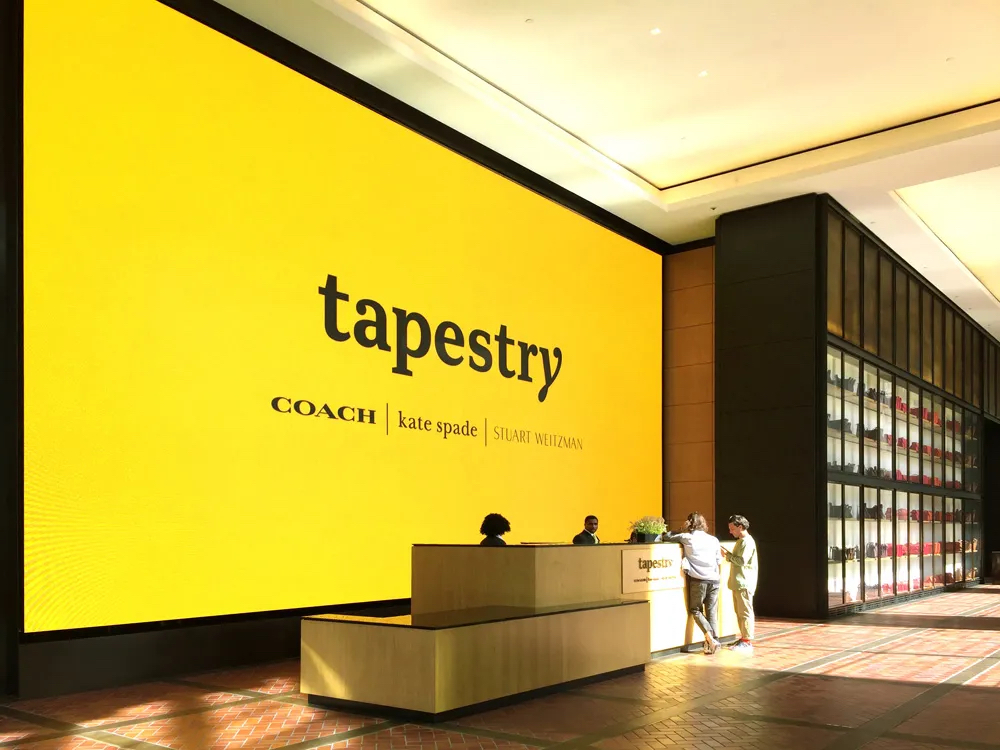Pending Appeal, the FTC Has Halted the Potential $8.5 Billion Sale of Capri Holdings to Tapestry Inc.
The proposed $8.5 billion merger between Tapestry, the parent company of Coach, and Capri Holdings, owner of Michael Kors, has been halted following a preliminary injunction issued by U.S. District Judge Jennifer Rochon. This ruling, part of a Federal Trade Commission case, has blocked the acquisition over concerns it would “substantially lessen competition in the market for accessible-luxury handbags.” The merger would have combined Tapestry’s brands (Coach, Kate Spade, and Stuart Weitzman) with Capri’s portfolio, including Michael Kors, Versace, and Jimmy Choo, creating a formidable American fashion conglomerate.
Capri’s shares dropped sharply by 47%, settling at $22, a significant decline from the $57 buyout price agreed upon with Tapestry. In contrast, Tapestry’s stock saw a rise, reflecting mixed investor sentiments as Capri’s financial stability has reportedly weakened since the initial merger announcement in August 2023.
The FTC’s position, as outlined by Henry Liu, director of the FTC’s Bureau of Competition, emphasized the importance of preserving competition, particularly in the accessible-luxury handbag sector. “These bags are a product which millions of people rely on throughout their daily lives,” Liu said. The FTC argued that the merger could lead to higher prices and reduced consumer choice, impacting middle- and working-class buyers who favor brands like Coach and Michael Kors.
Fashion and antitrust experts reacted with surprise to the ruling. Some have questioned the idea of treating “accessible luxury” as a distinct market, noting that brands in this category face competition from both luxury and budget alternatives, as well as from a thriving resale market that includes products from companies such as Coach and Michael Kors. Others pointed out that this decision could hinder the growth of a major American fashion conglomerate, likening the possibility of building a U.S. equivalent of LVMH to an unlikely outcome.
This case marks a rare move by the FTC into the fashion industry, creating uncertainty for future mergers. Attorney Jonathan Lazarow suggested the decision could complicate growth strategies for U.S. brands aiming to expand through acquisitions, especially in highly concentrated markets. He noted that smaller businesses may still pursue acquisitions, but large, established firms will likely face greater regulatory challenges.
In response to the ruling, Tapestry reaffirmed its belief in the merger’s competitive merits, citing the “intensely competitive” nature of the fashion industry, with pressures from both premium and budget brands. “We intend to appeal the decision, consistent with our obligations under the merger agreement,” Tapestry said in a statement, despite legal experts noting that appeals of such rulings are rarely successful.
The merger’s potential now hangs in balance as both companies prepare for continued competition in the accessible-luxury market.
